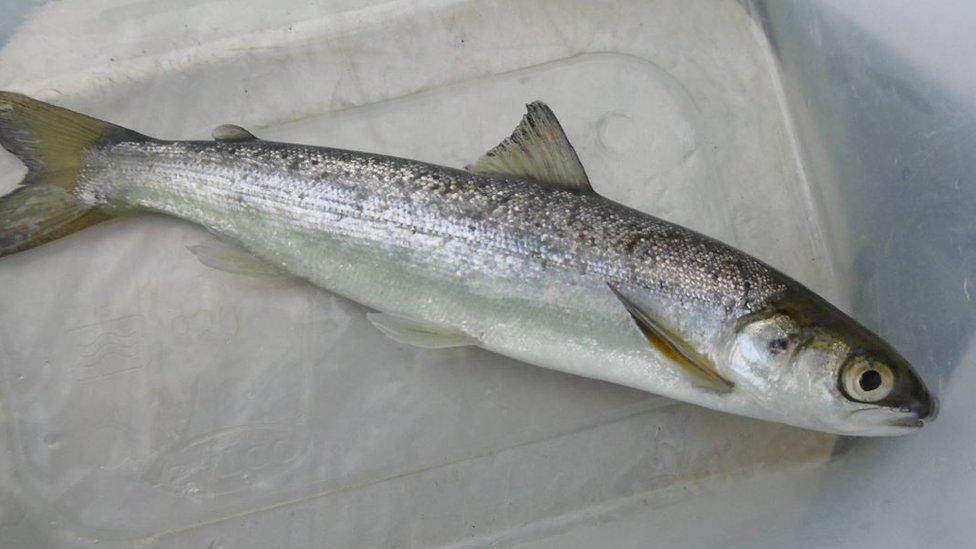One million trees to be planted in Cairngorms wildlife project
- Published
About 200,000 trees have already been planted.
Plans to plant one million trees in the Cairngorms as part of a major wildlife restoration project have been unveiled.
The £5.5m project aims to tackle a decline in salmon numbers, by providing shade on tributaries of the Dee in the Balmoral and Invercauld estates.
It is believed the shade will help keep river temperatures down, easing damage on young salmon stocks.
The project is being led by the River Dee Trust charity, in the hope it will help wildlife to thrive in the future.
The trees would also offer nutrition and shelter for other species.
So far, about 200,000 have already been planted.
The aim is for the remainder to go into the ground over the next 15 years, doubling the current rate of planting.
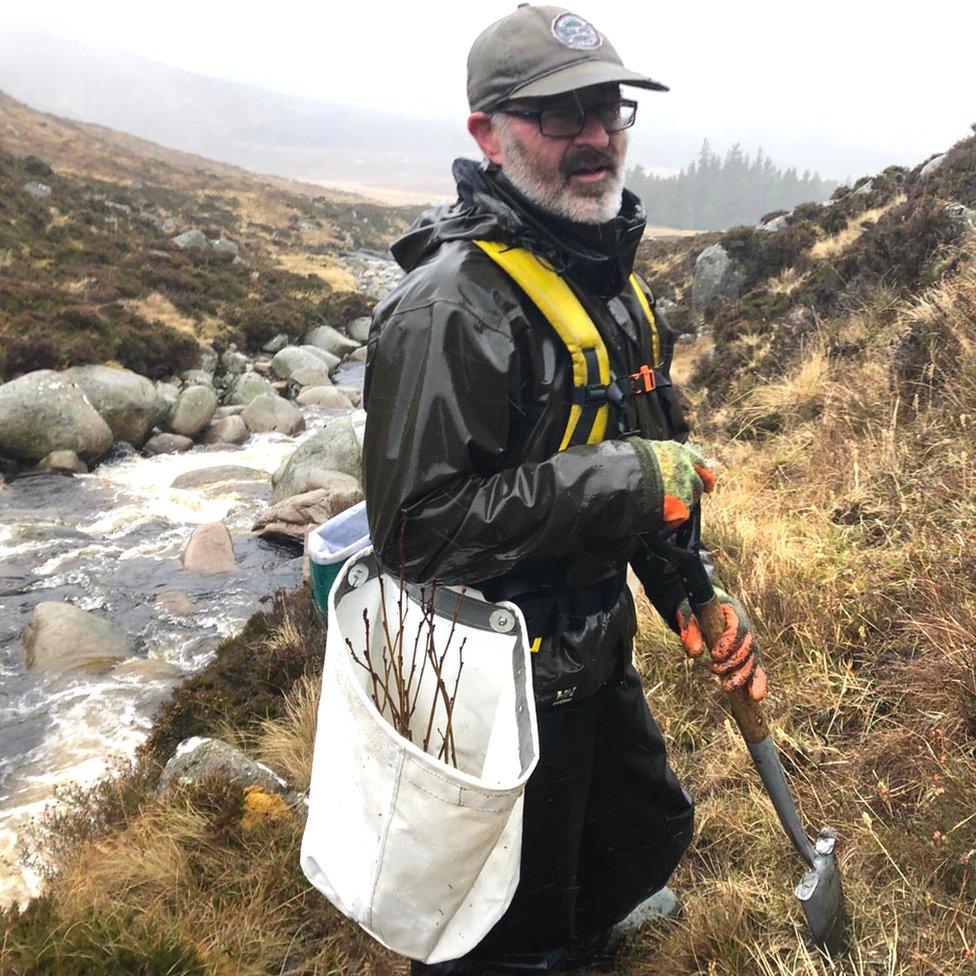
Fisheries officer Colin Esson is planting saplings

The main species of trees involved are alder, willow, rowan, birch, aspen and Scots pine.
It is said they would have been common in the landscape thousands of years ago.
River Dee director Lorraine Hawkins said that Atlantic salmon are now "virtually extinct" across their southern European range, and are vanishing fast in the south of England.
"All the major Scottish salmon rivers have seen drastic declines," she explained. "At current rates, we may have just 20 years to save the species.
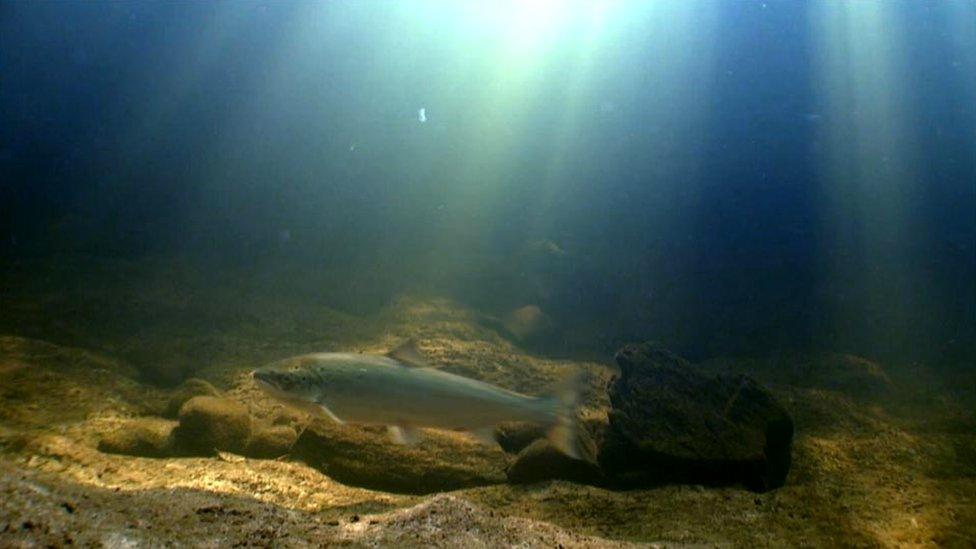
"We know there are catastrophic losses at sea. Those factors must be tackled urgently. But we can take action now to give the young fish their best chance of survival before leaving their native rivers.
"We must provide shade against more of the extreme temperatures we have been told to expect, while restoring a whole ecosystem that's been degraded over many centuries. This will help our threatened salmon, and all wildlife will benefit."
She added: "Of all the major Scottish rivers, the Dee is especially vulnerable to extreme temperatures because of its land use. We are determined to do everything we can to help nature help itself."
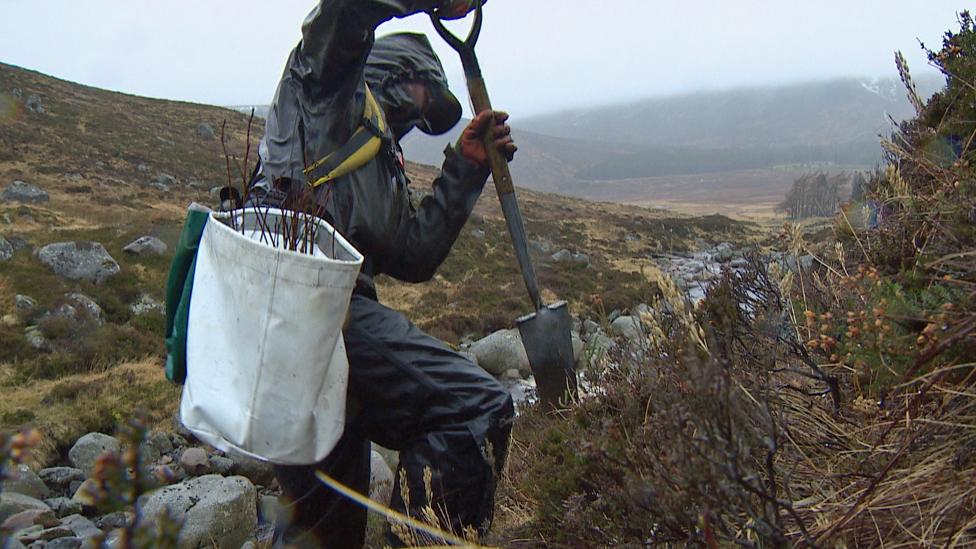
The Trusts's fisheries officer Colin Esson is among those doing the planting by hand, his small spade breaking the ground to allow thousands of young saplings to be carefully placed down.
He said of his efforts: "Hopefully it should give a bit of shelter not only to the animals but to the river.
"That's what we're concerned about - the rise in temperature, so we want to get some shelter, particularly in these high up burns, (which are) more vulnerable to higher temperatures."
Angling in the River Dee is said to generate about £15m annually and support hundreds of jobs.
- Published5 April 2019
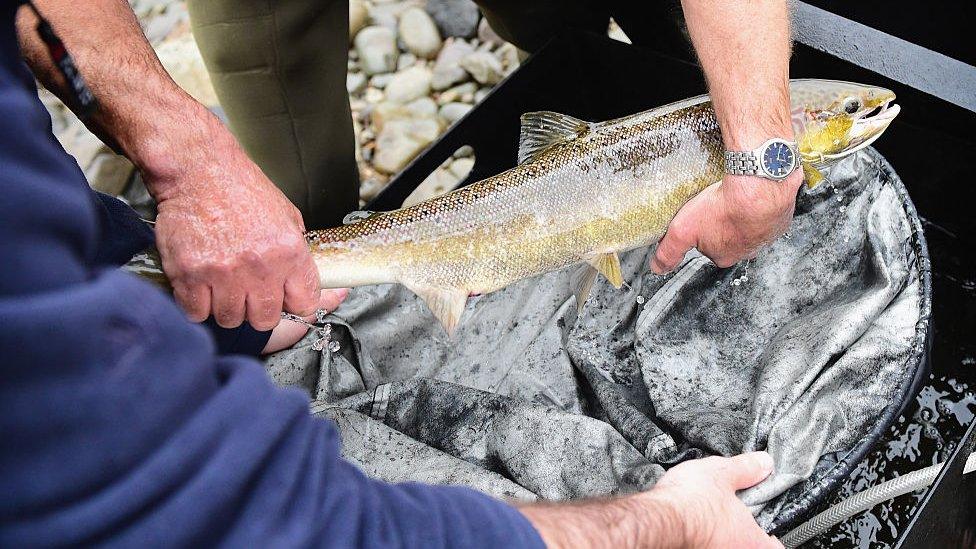
- Published1 February 2018
